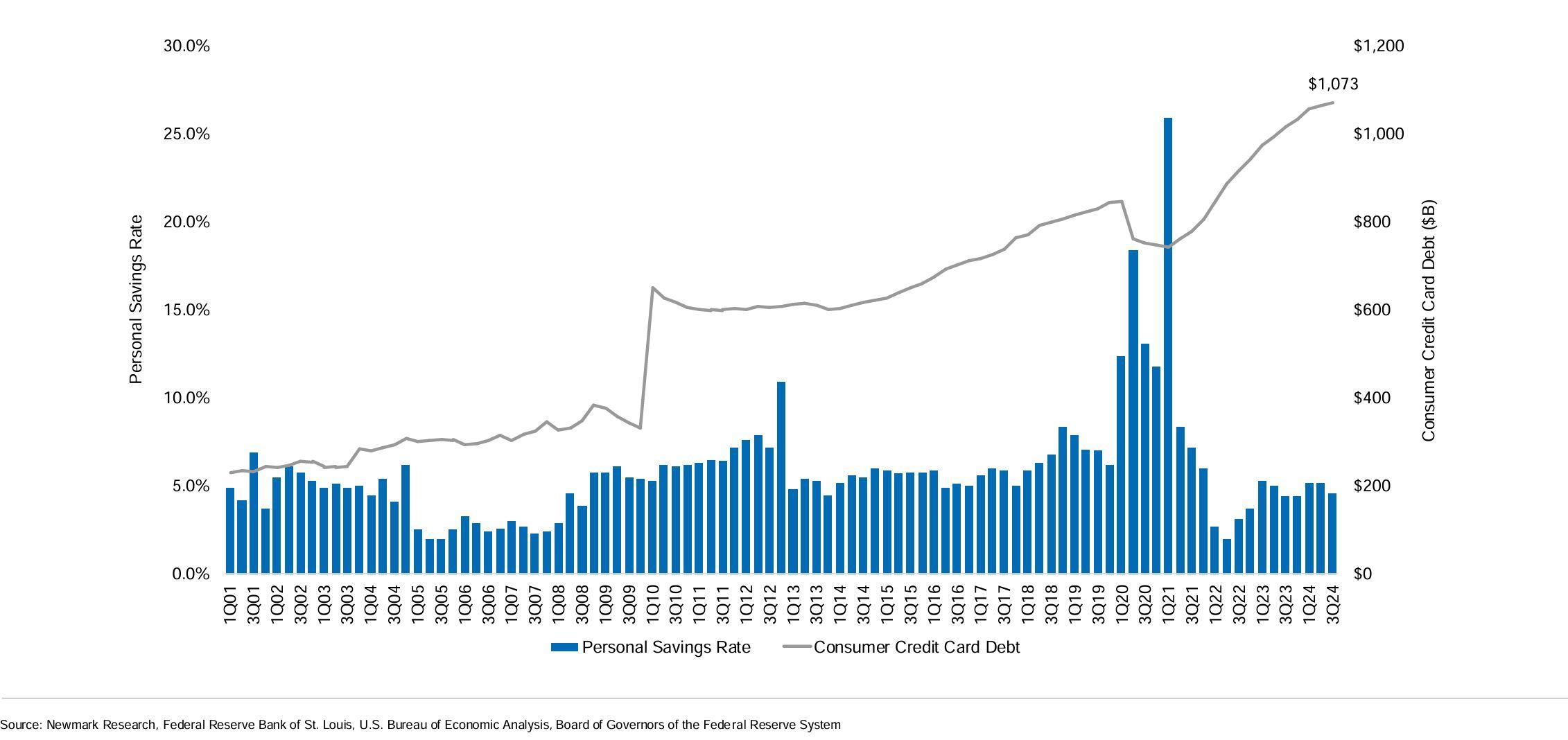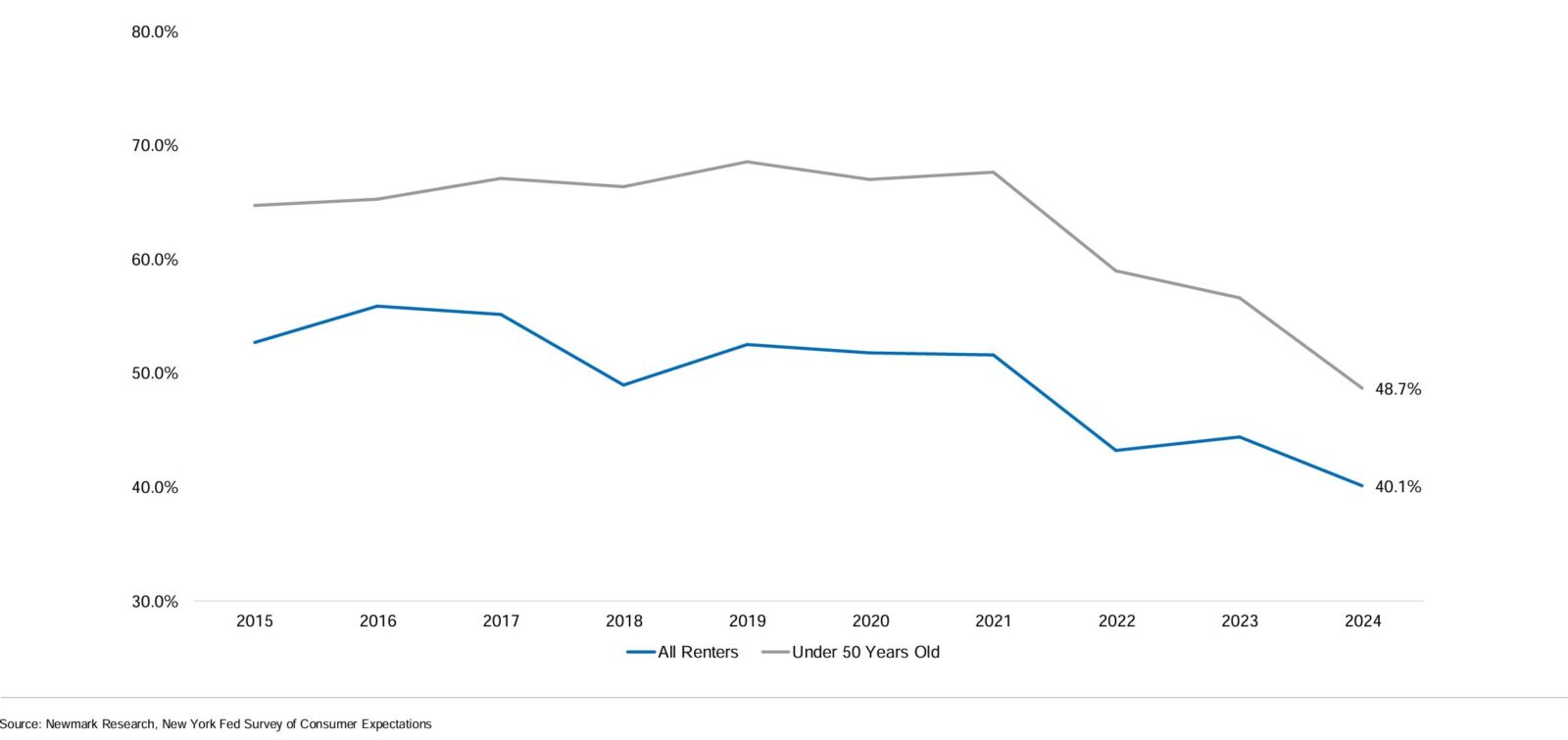Scarce New Inventory for Homebuyers Affected by Eye-opening High Interest Rates & Insurance, Surging Rental Demand Need
Newmark Q3 2024 Multifamily Capital Market Report
At first glance, Newmark’s Q3 2024 U.S. Multifamily Capital Markets Report presents troubling news for the secondary market new home inventory for aspiring homeowners.
According to the recent report, the cost gap between homeownership and renting widened to $1,203 in the third quarter of 2024, making renting notably more cost-effective than purchasing a home. This downward pressure on new home inventory in secondary markets was driven primarily by higher homeownership expenses and persistently elevated interest rates; in addition, rising insurance premiums which are further increasing the financial burden. Consequently, many prospective buyers are now weighing whether homeownership is worth the additional cost—or if renting remains the more economical choice.

A Lack of Interest Rate Cuts Affecting New Home Inventory
At the same time, the ongoing absence of an interest rates cut continues to burden prospective sellers, thereby shrinking new home inventory. Higher borrowing costs discourage existing homeowners from listing their properties, resulting in constrained housing market inventory and elevated home prices. Consequently, housing becomes even less attainable—particularly on the West Coast—so many individuals gravitate toward renting instead.
Moreover, historically high household formation further intensifies competition for both for-sale and rental housing. In fact, from 2014 to 2023, the United States added 16.5 million new households, with annual growth averaging 1.3% in 2023—40 basis points above the long-term trend. At first glance, these numbers suggest a robust housing market, but the lack of an interest rates cut leaves hopeful buyers struggling with more than just price.
Credit Card Debt Affecting Homebuyers Ability to Obtain New Housing Inventory
Not only are they facing steep mortgage costs, but they also carry unprecedented credit card debt, limiting resources for down payments. Indeed, credit card balances have reached record highs, underscoring the financial strain on would-be homeowners. Under these circumstances, the path to ownership narrows, while demand for rental options remains steady—and in many regions, surges outright. For more insight into how we evaluate prospective deals in dynamic markets like this, read about Our Multifamily Acquisition Criteria on the Piping Rock Partners website.
Consumers Have Less Money for Down Payments as Credit Card Debt Grows

Nevertheless, these financial constraints are fueling a noticeable decline in homeownership aspirations among renters, thereby undermining their ability to tap new home inventory. According to the New York Federal Reserve, consumer sentiment among renters of all ages indicates that merely 40.1% are likely to buy a home within the next three years—a striking drop from 51.8% four years ago. Likewise, respondents under 50 once showed higher optimism, yet their confidence fell sharply from 67.1% in 2020 to 48.7% now.
Renters Probability of Buying a Home Within the Next 3 Years

In any event, mounting credit card debt, together with elevated mortgage rates, leaves many aspiring buyers effectively priced out of the housing market inventory. Although new household formation remains strong, the transition from renter to owner becomes increasingly difficult when financial pressures intensify. Hence, these trends continue to sustain rental demand, reinforcing the notion that renting often remains the most cost-effective option.
The Rental Market Outlook Based on New Home Inventory Availability
Eventually, the data strongly indicates that rental demand will remain elevated for the foreseeable future. Because new home inventory continues to be constrained by persistently high interest rates, many would-be buyers find homeownership unattainable. In the same way, limited housing market inventory creates an environment where well-positioned rental properties can achieve above-market returns.
In brief, real estate investors have strong incentives to enhance existing rental assets or acquire new communities—particularly when an interest rates cut is nowhere in sight. Moreover, unless the Federal Reserve implements meaningful changes to fed interest rates 2025, these trends may persist, driving robust multifamily performance.
Consequently, those seeking stable, long-term gains may find rental investments especially compelling amid ongoing inventory shortages.
